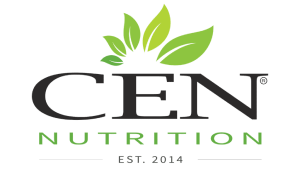Dogs do not have a nutritional requirement for carbohydrates.
There are generally only two instances I will add in carbohydrates to a dog’s diet.
- A pregnant bitch
- An extremely active dog
These carbohydrates would come from steamed pumpkin. NOT cheap grains.
Dogs receive all their nutrients they need from Protein & Fats.
Dogs are perfectly able to convert proteins in their diet into the glucose they need for metabolic functions.
Kibble is not healthy. The majority of them contain excesses of grains and cereals, calcium, phosphorus, sodium, fats, sugar, and other additives, excesses of which cause and contribute to the ill-health and disease of our pets today.
So why are kibble companies feeding our dogs a food that is meant to be “Nutritionally balanced” but is full of carbohydrates?
The machinery that produces dry kibble requires sufficient carbohydrates to make the dough pasty and expandable. Kibble never contains more than 28% – max 30% meat content otherwise it won’t form into a biscuit.
When they produce kibble it must meet a certain amount of calories to meet AAFCO standards. The easiest and cheapest way to do this is by adding cheap grains like wheat, corn, beans, peas, legumes, soy, rice.
Cost. It is much cheaper to use fillers such as the above to make a product. It reduces overall costs meaning they make more profit.
Cheap carbohydrates are also added for taste. All carbohydrates turn into sugar other than fibre. Like humans, dogs get addicted to the sugary taste.
Most dry kibble dog foods contain 30-60% grains or other starchy vegetables like potatoes and legumes. This is an excessive amount of carbohydrates.
Dog food companies are NOT required by law to disclose the actual carbohydrate content of their products. They only have to disclose the amount of – Protein , Fat, Fibre, & Moisture.
Keeping in mind also the protein and fat contained in kibble is usually poor quality.
Much of the protein in commercial kibble diets is also plant based, which is not utilised the same as animal sources.
Manufacturers try to add back some of the lost nutritional value with synthetic vitamins and minerals so their formulas comply with AAFCO standards and they can call their food “complete and balanced” on their label. Synthetic vitamins will never compare to a natural source.
The truth is, AAFCO works tightly with major dog food manufacturers. Dog food manufactures have a huge say in the regulations on their own industry. Manufacturers essentially get to write their own rules in AAFCO.
Foods that are high in carbohydrate aren’t healthy for your dog because they
- Play havoc with insulin metabolism, we do not want our dogs having miss managed blood sugars. It’s a recipe for diabetes.
- Disrupt the gut microbiome, gluten containing foods are linked to leaky gut. Excessive carbohydrates also feed negative gram bacteria throwing out the microbiome balance.
- Cause excessive hunger and obesity. Protein and fat are required for satiety. Your dog will be hungry not long after eating kibble due to the high carbohydrates, low protein and rancid fats.
- Create inflammation that leads to tissue and organ degeneration. Carbohydrates like wheat, glutens, rice, soy, corn, beans, legumes cause inflammation in the gut. Period. An inflamed dog is a diseased dog.
Kibble companies are very good at sneaking in ingredients that are high sugar and high carbohydrates. Here is an example of sugars often added into kibble.
Beet pulp, cane, molasses, sugar, corn syrup, high fructose corn syrup, glucose, molasses and anything that ends in “ol.” They’re all sugars.
You will also find addictive ingredients in your dog’s kibble; this can include MSG listed as hydrolysed protein.
If none of the above reasons are making you switch from kibble to a fresh food diet then consider this. One of the best reasons to avoid foods with starch and sugar ingredients is that sugar is the favourite food of cancer. Cancer cells have limited metabolism that requires glucose. While the rest of your dog’s body can use protein and fat for energy, cancer can’t.
The best thing you can do for your dog to live a long happy health life is feed a fresh food diet. Don’t feed them kibble that is full of grains. Keep their carbohydrate intake low.
Jacinta Malone
Certified Canine & Feline Nutritionist
Chadwick Nutrition

